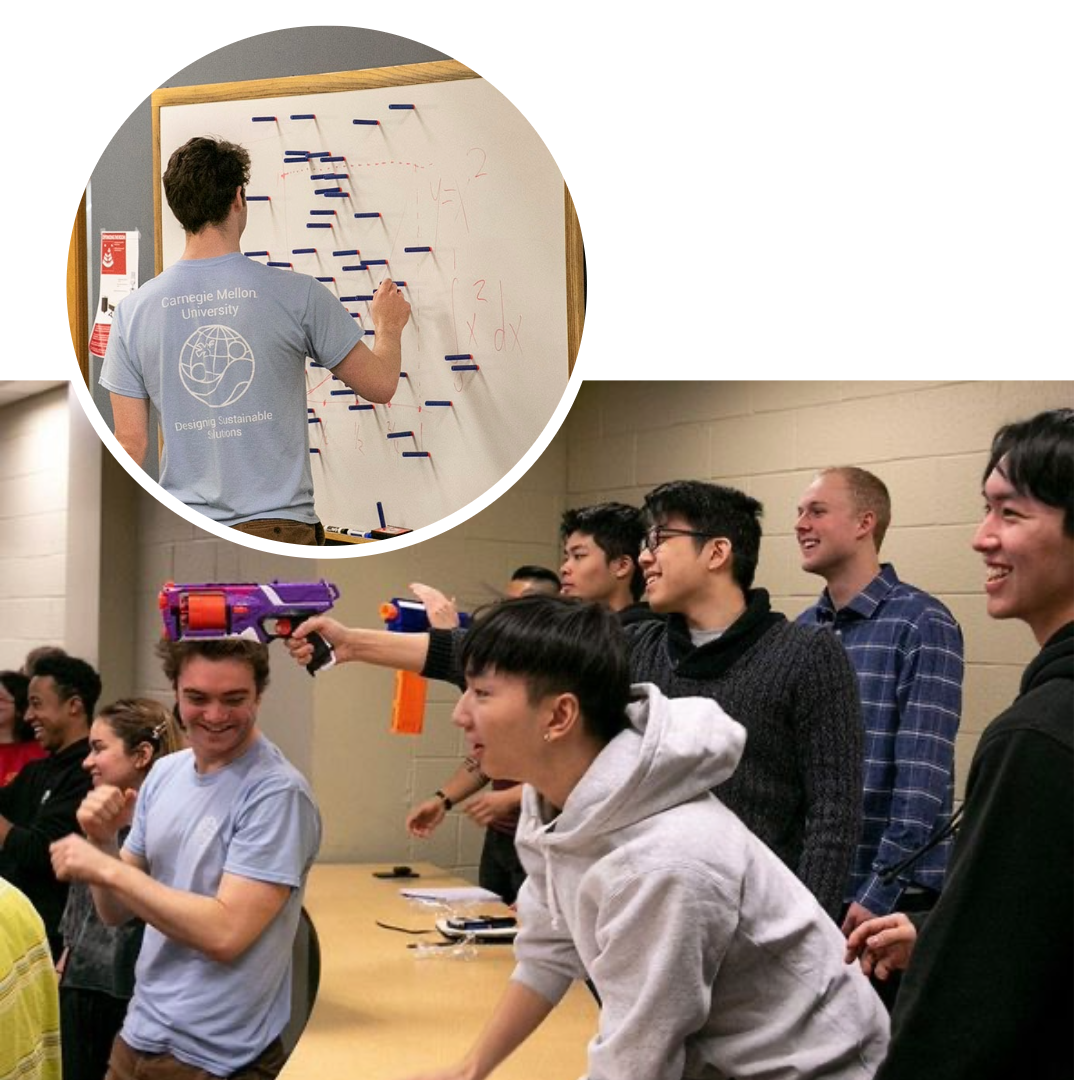
2024 CMU Teaching Innovation Award to Jerry Wang for “Participation Shoutouts!” activity
 Jerry Wang, assistant professor of civil and environmental engineering, has spent his career lifting others up; it is then fitting that he is being recognized for these very efforts. He has been awarded this year’s Teaching Innovation Award for creating his end-of-semester “Participation Shoutouts!” activity.
Jerry Wang, assistant professor of civil and environmental engineering, has spent his career lifting others up; it is then fitting that he is being recognized for these very efforts. He has been awarded this year’s Teaching Innovation Award for creating his end-of-semester “Participation Shoutouts!” activity.
In the activity, students are encouraged to submit short statements of gratitude for other students in the class who have helped them or who have had a positive effect on them or their studies. They can choose whether their shoutout will be shared with the person they write about or whether it will stay between them and Wang. They face no consequences if they choose not to submit one at all, and even though submitting one will not personally benefit the student writing a shoutout, it has a chance to increase the participation grade of the student it is about. This way, students do not have to stress about the activity, but they can use it to genuinely show gratitude to others.
Wang has been creating shoutouts to inspire and uplift others around him for years, going back to his time as a student at MIT, and “Participation Shoutouts!” are a natural development of this habit. He has become known by his students for his humor and playfulness, which are combined with his emphasis on making sure students really learn class material.
 Students remember Wang and his enthusiasm fondly: Emerson Collins, a graduate of the class of 2023 who is now currently a civil analyst at Kimley-Horn, wrote, “Although I interacted with many amazing professors at CMU, none were quite as genuinely engaged as Jerry. His passion for knowledge and encouragement of learning provided an innovative, stimulating classroom experience. From interactive games (ex. shooting nerf guns at walls to understand statistical distributions) to cooperative team projects, there was never a dull moment in Jerry’s classroom.”
Students remember Wang and his enthusiasm fondly: Emerson Collins, a graduate of the class of 2023 who is now currently a civil analyst at Kimley-Horn, wrote, “Although I interacted with many amazing professors at CMU, none were quite as genuinely engaged as Jerry. His passion for knowledge and encouragement of learning provided an innovative, stimulating classroom experience. From interactive games (ex. shooting nerf guns at walls to understand statistical distributions) to cooperative team projects, there was never a dull moment in Jerry’s classroom.”
On the last day of class, Wang creates and shares a web showing the students’ connections. He ties the web back to the class material to show the students how they can apply what they have learned from him. He also uses the web to learn more about subtle or hidden class dynamics that he would have otherwise missed, such as when sub-communities form, when one student has been instrumental in creating a sense of community, or when relationships were robust, and he can pass this information on to other professors that these students will have. He also designed the activity to be transferable, so it can be used in any class regardless of material, size, or level.
“Because computing is a core component of many courses across campus, the data analysis and visualization methods employed could be adapted to benefit a wide array of disciplines. Furthermore, collecting and visualizing this data may find relevance in courses focused on understanding human behavior,” said Sarah Christian, associate teaching professor of civil and environmental engineering.
Students credit the “Participation Shoutouts!” for helping them in their studies at CMU. “Participation shoutouts have genuinely made a massive impact on my education,” said Alex Wang, a current student. “I have found this practice to increase both my long-term absorption of the material and my overall happiness. By writing down what people did that helped me, I can remember for longer the actual material of the course.”
Writing the shoutouts also did more than help with the material, but also helped students remember that they are part of a community, wrote another current student, Vincent Cheng: “Writing participation shoutouts helped remind me of the camaraderie and the importance of teamwork in the context of large projects or grasping complicated concepts, a situation all too common in engineering and in Carnegie Mellon as a whole.”
Wang’s aim with “Participation Shoutouts!” is to reduce friction to expressing gratitude. “There is little I believe more firmly than this—our campus (not to mention our country and our body politic) would be so much the better if more people regularly engaged in the conscientious expression of gratitude.”